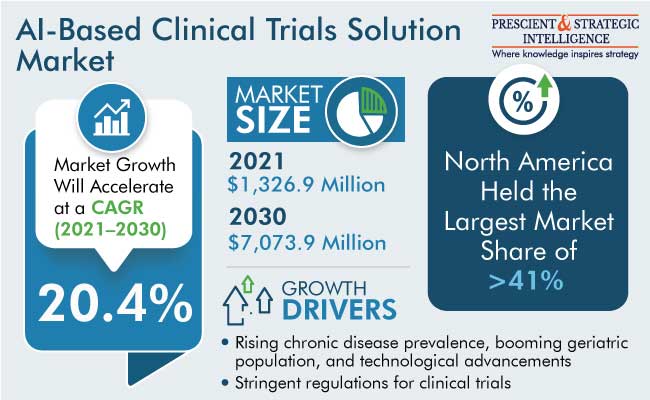Die-Attach Materials Market: Global Industry Analysis and Forecast (2023-2029)
DieAttach Materials Market size is expected to reach nearly US$ 975.68 Mn. by 2029 with the CAGR of 5.7% during the forecast period.
Market Scope:
The DieAttach Materials Market Report provides a comprehensive analysis of the market, covering data on several factors such as constraints, opportunities, drivers, and threats. The report provides the most up-to-date research on the current global market development plan, as well as the pre- and post-Covid-19 scenarios. It also provides a comprehensive analysis of the market’s size based on end-user applications, products, kinds, trends, and major geographic areas.
Click Here for Your Free Sample https://www.maximizemarketresearch.com/request-sample/35169/
Drivers:
Major restraints and drivers that affect the DieAttach Materials Market have also been covered in the DieAttach Materials Market report.
Request a Free Sample Inquiry : https://www.maximizemarketresearch.com/inquiry-before-buying/35169/
Segmentation:
by Form Type
Powder
Paste
Wires
by Material Type
Polymer Adhesives
Eutectic Die Attach Materials
Other Material Type
Key Players: the key players are
1.Dow Corning Corporation
2.AI Technology, Inc.
3.Henkel AG & Co. KGaA
4.Creative Materials Inc.
5.Master Bond Inc.
6.Alpha Assembly Solutions
7.Delo Industrie Klebstoffe GmbH & Co. KGaA
8.Indium Corporation
9.BE Semiconductor Industries N.V.
10.The Dow Chemical Company
11.Hybond Inc.
12.SMIC
13.Shenzhen Vital New Material
14.TONGFANG TECH
15.Umicore
16.Heraeu
17.AIM
18.TAMURA RADIO
19.Kyocera
20.Shanghai Jinji
21.Palomar Technologies
22.Nordson EFD
Regional Analysis:
The report has assessed the global DieAttach Materials Market in the following regions:
America, North (the United States, Canada)
European Union (Germany, France, United Kingdom, Russia)
Asia-Pacific region (China, Japan, Korea, India, Southeast Asia, and Australia)
Latin America (Brazil, Argentina, Colombia)
Africa and the Middle East (Saudi Arabia, UAE, Egypt, South Africa)
The report also includes the following:
The analysis looks at how the DieAttach Materials Market is expected to grow in the future. Using Porter’s five forces analysis to examine several perspectives on the DieAttach Materials Market
Analyzing the product type that is most likely to dominate the market and the regions that are most likely to see rapid growth throughout the projected period
Identify new advancements, DieAttach Materials Market shares, and the leading market players’ strategies.
Key Questions answered in the DieAttach Materials Market Market Report are:
Which key trends are likely to emerge in the DieAttach Materials Market in the forecast period?
What will be the DieAttach Materials Market size by 2029?
Which company had the biggest share in the DieAttach Materials Market in 2023?
About Maximize Market Research:
Maximize Market Research is a multifaceted market research and consulting company with professionals from several industries. Some of the industries we cover include medical devices, pharmaceutical manufacturers, science and engineering, electronic components, industrial equipment, technology and communication, cars and automobiles, chemical products and substances, general merchandise, beverages, personal care, and automated systems. To mention a few, we provide market-verified industry estimations, technical trend analysis, crucial market research, strategic advice, competition analysis, production and demand analysis, and client impact studies.
Contact Maximize Market Research:
MAXIMIZE MARKET RESEARCH PVT. LTD.
⮝ 3rd Floor, Navale IT park Phase 2,
Pune Banglore Highway, Narhe
Pune, Maharashtra 411041, India.
✆ +91 9607365656
🖂 sales@maximizemarketresearch.com
www.maximizemarketresearch.com
DieAttach Materials Market size is expected to reach nearly US$ 975.68 Mn. by 2029 with the CAGR of 5.7% during the forecast period.
Market Scope:
The DieAttach Materials Market Report provides a comprehensive analysis of the market, covering data on several factors such as constraints, opportunities, drivers, and threats. The report provides the most up-to-date research on the current global market development plan, as well as the pre- and post-Covid-19 scenarios. It also provides a comprehensive analysis of the market’s size based on end-user applications, products, kinds, trends, and major geographic areas.
Click Here for Your Free Sample https://www.maximizemarketresearch.com/request-sample/35169/
Drivers:
Major restraints and drivers that affect the DieAttach Materials Market have also been covered in the DieAttach Materials Market report.
Request a Free Sample Inquiry : https://www.maximizemarketresearch.com/inquiry-before-buying/35169/
Segmentation:
by Form Type
Powder
Paste
Wires
by Material Type
Polymer Adhesives
Eutectic Die Attach Materials
Other Material Type
Key Players: the key players are
1.Dow Corning Corporation
2.AI Technology, Inc.
3.Henkel AG & Co. KGaA
4.Creative Materials Inc.
5.Master Bond Inc.
6.Alpha Assembly Solutions
7.Delo Industrie Klebstoffe GmbH & Co. KGaA
8.Indium Corporation
9.BE Semiconductor Industries N.V.
10.The Dow Chemical Company
11.Hybond Inc.
12.SMIC
13.Shenzhen Vital New Material
14.TONGFANG TECH
15.Umicore
16.Heraeu
17.AIM
18.TAMURA RADIO
19.Kyocera
20.Shanghai Jinji
21.Palomar Technologies
22.Nordson EFD
Regional Analysis:
The report has assessed the global DieAttach Materials Market in the following regions:
America, North (the United States, Canada)
European Union (Germany, France, United Kingdom, Russia)
Asia-Pacific region (China, Japan, Korea, India, Southeast Asia, and Australia)
Latin America (Brazil, Argentina, Colombia)
Africa and the Middle East (Saudi Arabia, UAE, Egypt, South Africa)
The report also includes the following:
The analysis looks at how the DieAttach Materials Market is expected to grow in the future. Using Porter’s five forces analysis to examine several perspectives on the DieAttach Materials Market
Analyzing the product type that is most likely to dominate the market and the regions that are most likely to see rapid growth throughout the projected period
Identify new advancements, DieAttach Materials Market shares, and the leading market players’ strategies.
Key Questions answered in the DieAttach Materials Market Market Report are:
Which key trends are likely to emerge in the DieAttach Materials Market in the forecast period?
What will be the DieAttach Materials Market size by 2029?
Which company had the biggest share in the DieAttach Materials Market in 2023?
About Maximize Market Research:
Maximize Market Research is a multifaceted market research and consulting company with professionals from several industries. Some of the industries we cover include medical devices, pharmaceutical manufacturers, science and engineering, electronic components, industrial equipment, technology and communication, cars and automobiles, chemical products and substances, general merchandise, beverages, personal care, and automated systems. To mention a few, we provide market-verified industry estimations, technical trend analysis, crucial market research, strategic advice, competition analysis, production and demand analysis, and client impact studies.
Contact Maximize Market Research:
MAXIMIZE MARKET RESEARCH PVT. LTD.
⮝ 3rd Floor, Navale IT park Phase 2,
Pune Banglore Highway, Narhe
Pune, Maharashtra 411041, India.
✆ +91 9607365656
🖂 sales@maximizemarketresearch.com
www.maximizemarketresearch.com
Die-Attach Materials Market: Global Industry Analysis and Forecast (2023-2029)
DieAttach Materials Market size is expected to reach nearly US$ 975.68 Mn. by 2029 with the CAGR of 5.7% during the forecast period.
Market Scope:
The DieAttach Materials Market Report provides a comprehensive analysis of the market, covering data on several factors such as constraints, opportunities, drivers, and threats. The report provides the most up-to-date research on the current global market development plan, as well as the pre- and post-Covid-19 scenarios. It also provides a comprehensive analysis of the market’s size based on end-user applications, products, kinds, trends, and major geographic areas.
Click Here for Your Free Sample https://www.maximizemarketresearch.com/request-sample/35169/
Drivers:
Major restraints and drivers that affect the DieAttach Materials Market have also been covered in the DieAttach Materials Market report.
Request a Free Sample Inquiry : https://www.maximizemarketresearch.com/inquiry-before-buying/35169/
Segmentation:
by Form Type
Powder
Paste
Wires
by Material Type
Polymer Adhesives
Eutectic Die Attach Materials
Other Material Type
Key Players: the key players are
1.Dow Corning Corporation
2.AI Technology, Inc.
3.Henkel AG & Co. KGaA
4.Creative Materials Inc.
5.Master Bond Inc.
6.Alpha Assembly Solutions
7.Delo Industrie Klebstoffe GmbH & Co. KGaA
8.Indium Corporation
9.BE Semiconductor Industries N.V.
10.The Dow Chemical Company
11.Hybond Inc.
12.SMIC
13.Shenzhen Vital New Material
14.TONGFANG TECH
15.Umicore
16.Heraeu
17.AIM
18.TAMURA RADIO
19.Kyocera
20.Shanghai Jinji
21.Palomar Technologies
22.Nordson EFD
Regional Analysis:
The report has assessed the global DieAttach Materials Market in the following regions:
America, North (the United States, Canada)
European Union (Germany, France, United Kingdom, Russia)
Asia-Pacific region (China, Japan, Korea, India, Southeast Asia, and Australia)
Latin America (Brazil, Argentina, Colombia)
Africa and the Middle East (Saudi Arabia, UAE, Egypt, South Africa)
The report also includes the following:
The analysis looks at how the DieAttach Materials Market is expected to grow in the future. Using Porter’s five forces analysis to examine several perspectives on the DieAttach Materials Market
Analyzing the product type that is most likely to dominate the market and the regions that are most likely to see rapid growth throughout the projected period
Identify new advancements, DieAttach Materials Market shares, and the leading market players’ strategies.
Key Questions answered in the DieAttach Materials Market Market Report are:
Which key trends are likely to emerge in the DieAttach Materials Market in the forecast period?
What will be the DieAttach Materials Market size by 2029?
Which company had the biggest share in the DieAttach Materials Market in 2023?
About Maximize Market Research:
Maximize Market Research is a multifaceted market research and consulting company with professionals from several industries. Some of the industries we cover include medical devices, pharmaceutical manufacturers, science and engineering, electronic components, industrial equipment, technology and communication, cars and automobiles, chemical products and substances, general merchandise, beverages, personal care, and automated systems. To mention a few, we provide market-verified industry estimations, technical trend analysis, crucial market research, strategic advice, competition analysis, production and demand analysis, and client impact studies.
Contact Maximize Market Research:
MAXIMIZE MARKET RESEARCH PVT. LTD.
⮝ 3rd Floor, Navale IT park Phase 2,
Pune Banglore Highway, Narhe
Pune, Maharashtra 411041, India.
✆ +91 9607365656
🖂 sales@maximizemarketresearch.com
🌐 www.maximizemarketresearch.com
0 Комментарии
0 Поделились
0 Отзывы







